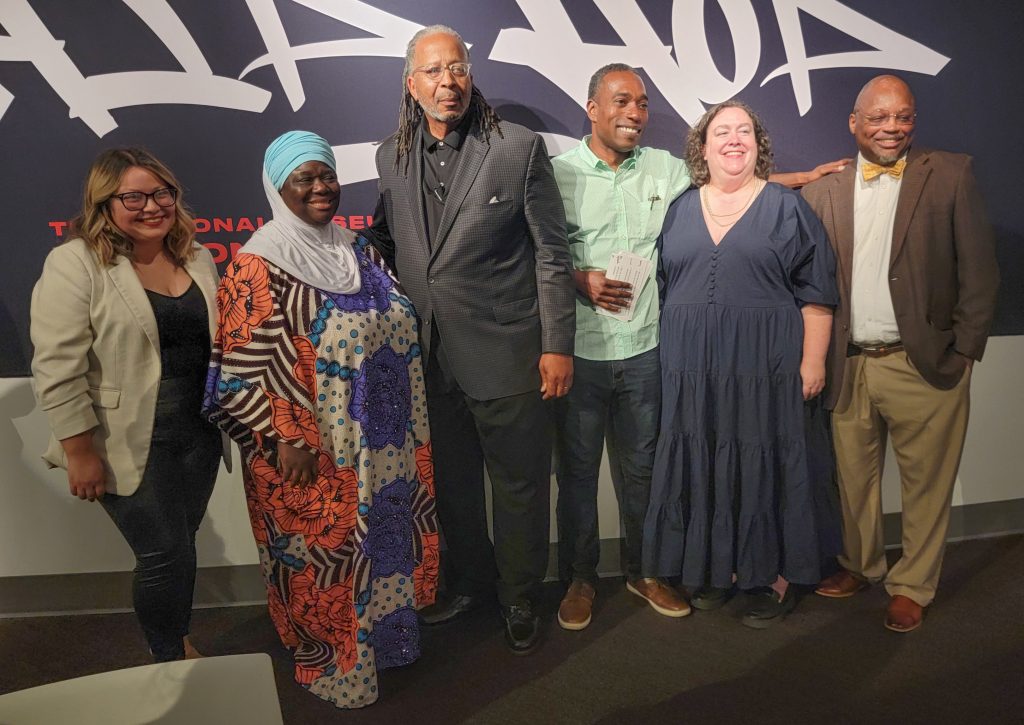By Ashley Benkarski
NASHVILLE, TN — The fate of Nashville’s historic Morris Memorial Building has been unclear for some time, but the building once slated to become a boutique hotel still has a chance to be preserved.
Councilmember Zulfat Suara proposed legislation that would allow the City to use excess funds to purchase the building; that proposal was heard by Metro Council Tuesday, June 20.
The vote failed, with 23 members voting ‘yes’ and 24 voting ‘no.’
Undeterred, Suara said the movement will push on in email Wednesday. “We will be looking at other options. Most spoke about saving the building and [Vice Mayor] Shulman indicated he is willing to create a special council committee to look into what metro can do.”
And the cost for the city? $6 million. That’s thanks to the National Baptist Convention, who has offered to shoulder half the cost of the original $12 million.
“We’re going to need your help. If not, this can will get kicked down the road. But there are other cans that hold more political importance to some people than this can that will not get kicked down the road unless you step in,” Pastor Davie Tucker said, calling for constituents to hold their representatives accountable.
The ‘Save the Morris’ campaign kicked off Saturday at The National Museum of African American Music (NMAAM), which celebrated the historic building’s legacy with speakers, a panel, food catered by Smokin’ Buttz and a performance by the Black Opry.
Pastor Tucker, Metro Human Relations Commission Executive Director, and Dr. Marisa Richmond, Commissioner joined Vanderbilt professor Dr. Forrest Harris in delivering keynote speeches prior to the three-person panel that included Tennessee State University professor Dr. Learotha Williams, historian and scholar Betsy Phillips and Councilmember Sandra Sepulveda. It was moderated by Nashville Public Radio’s Khalil Ekulona.
The Morris Building’s significance to Black history, and ultimately Nashville’s history, make it uniquely qualified to house the African American History and Civil Rights museum that truly belongs in Music City, where the movement itself took root.
Unfortunately, Ekulona said, there is a common theme he hears around the community—Nashville isn’t for the people who live here; it caters to those who aren’t from here.
“African Americans were the ones that cleared the land, that made this place a prominent southern town,” Dr. Williams said. “African Americans are the people that gave Nashville its rhythm . . . Everything that made Nashville the ‘It City,’ or however you care to define it, is intimately related to the presence of African Americans here . . .We’ve been residents since day one but I humbly submit to you that sometimes it feels like we are the city’s most unwelcome residents. Sometimes, even, the most despised residents. And the city needs to come to terms with this.”
Phillips, underscoring the need for a place to make Nashville’s Black history accessible, said that she ran into a disturbing problem while researching for her book on three unsolved integration-era bombings that took place around the city. “Most of the stuff that I found about Nashville, like police records and all that kind of stuff, I found in Birmingham, because Nashville hadn’t bothered to keep that stuff,” she said, adding that the city needs a centralized hub to guide people to where these important sites are as well as a centralized hub collecting artifacts to help researchers in the future.
Robbie Jones, an architectural historian representing the Metro Historical Commission, with Richard Grubb and Associates, Inc., is working with journalist Natalie Bell to gather stories of the Civil Rights Era to identify places for a documentation project. If you have a story to contribute, contact rjones@rgaincorporated.com.
Opened in 1926 at 330 Charlotte Avenue, the Morris Building is the last remnant of a downtown that was once a hub for Black businesses.
Designed by the esteemed McKissack & McKissack architectural company, it housed the firm as well as Citizens Savings Bank & Trust Co. and the Sunday School Publishing Board, among others. The building is named for Elijah Camp Morris, the first president of the National Baptist Convention, who was a freedman. Brothers Calvin and Moses McKissack III, themselves the descendants of slaves, built the Neoclassical structure for the National Baptist Convention, U.S.A., Inc. McKissack and McKissack was the first Black architectural firm to operate in the nation, and still exists today.
A benefit concert at the Ryman Auditorium will be held July 15, 2023 at 8 p.m. CST after the John Lewis Memorial March downtown. The concert will be headlined by Grandmaster Flash and will feature Parson James and Reyna Roberts. The venue said all proceeds and funds raised will go to the creation of an African American and Civil Rights museum in the Morris Memorial Building.
To support fundraising efforts for the Morris Building visit www.cfmt.org/civilrightshistory.
For more information visit savethemorris.org.


